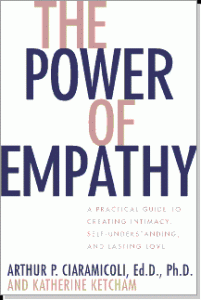Our Wake-Up Attitude is Pre-Determined
Posted by docapc at 7:08 pm
I was listening to a client this morning tell me that every day when she awakens her first thoughts are always anxious. She immediately thinks of the problems she must face. Her tension is visible in the mirror as she washes her face and her perspective has already become narrowed as anxiety produces worry. Worry limits her ability to view problems objectively which in turn causes a panicky state as she walks out the door to face the day.
How Come I’m so Negative?
I asked my client how she was awakened as a child. “Oh my God is was horrible, my mother would try to be kind for a few minutes but sooner or later she would start with all this tension, telling us were already late, we have to hurry and eat, she would be grabbing clothes out of the closet and talking so fast I just wanted to hide under the pillows”.
Rita’s mom was chronically late, relatively unprepared for the day herself, and usually worried she would be late for work so she unintentionally passed her anxious, worrisome ways onto her children as their eyes first saw daybreak. Rita learned from this habitual pattern that each day ahead should be approached very carefully, something was going to go wrong and you should always be prepared. This worry made her mind speed, and her ability to calm herself was non-existent. She was prescribed Ritalin in those days because her teachers thought her concentration was poor, her ability to attend and focus seemed to be neurologically programmed, and medication was seen as the answer to this dilemma. Needless to say Rita never realized in her teens that she was not necessarily a child with ADD, but was rather a child being programmed for worry and negativity.
Can Worry be changed to Optimism?
The answer is yes, but not without hard work. The first step is to identify, as Rita has, the origin of this conditioned way to beginning the day. If we were awakened to an environment of worry, anxiety, neglect, inattention, anger, irritation or any other negative emotional state we are carrying that habitual behavior with us today. We need to be very focused to turn our old embedded thinking pattern around so we can begin each day with an open, appreciative attitude.
Rita is a single mom, waking her 8 year old daughter with the tension she herself brings into the world every day. She then gets irritated with her daughter, just as her mother did with her, when she doesn’t obey her commands immediately. She starts to worry about being late for work, about forgetting something like her daughters lunch etc. When this tension filled process ends she is on her way to work in a state of mind that assures difficulty focusing, difficulty remembering and difficulty being able to perceive with an expanded view.
I asked Rita what she hoped would have been different in her own family experience. “ I wish my mom could have been affectionate, hugged me in my bed, a little kiss, soft words easing me into the day, I just wished she could have made me feel secure, made me feel like everything would be ok, sent me off with a smile rather than with that worried look of hers”.
Changing a Habit means Changing Behavior
I could have told Rita to exercise, mediate and eat nutriously to start her day, all valuable means to calmness. However Rita’s longings gave her the answers she was looking for, the most important variable to change. If she begins doing what she wished for she will not only change her daughter’s story but in the process she will change her own. We change by doing; it must be an active process. It is never easy; Rita will have to train herself to approach her daughter differently every day for some time before it will feel natural. One thing I know: if this new beginning makes Rita and her daughter happy it will continue and become a natural way of being.
Arthur P. Ciaramicoli, Ed.D., Ph.D.




